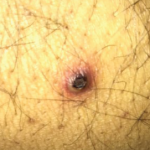ATLANTA—Obtaining prior authorization to ensure services or prescription drugs are covered by a patient’s health plan consumes staff time, and delays or denials may cause patients to abandon treatment, according to speakers at the 2019 ACR/ARP Annual Meeting. In a session on Nov. 10, the experts shared tips to smooth the process. Train Staff on…








